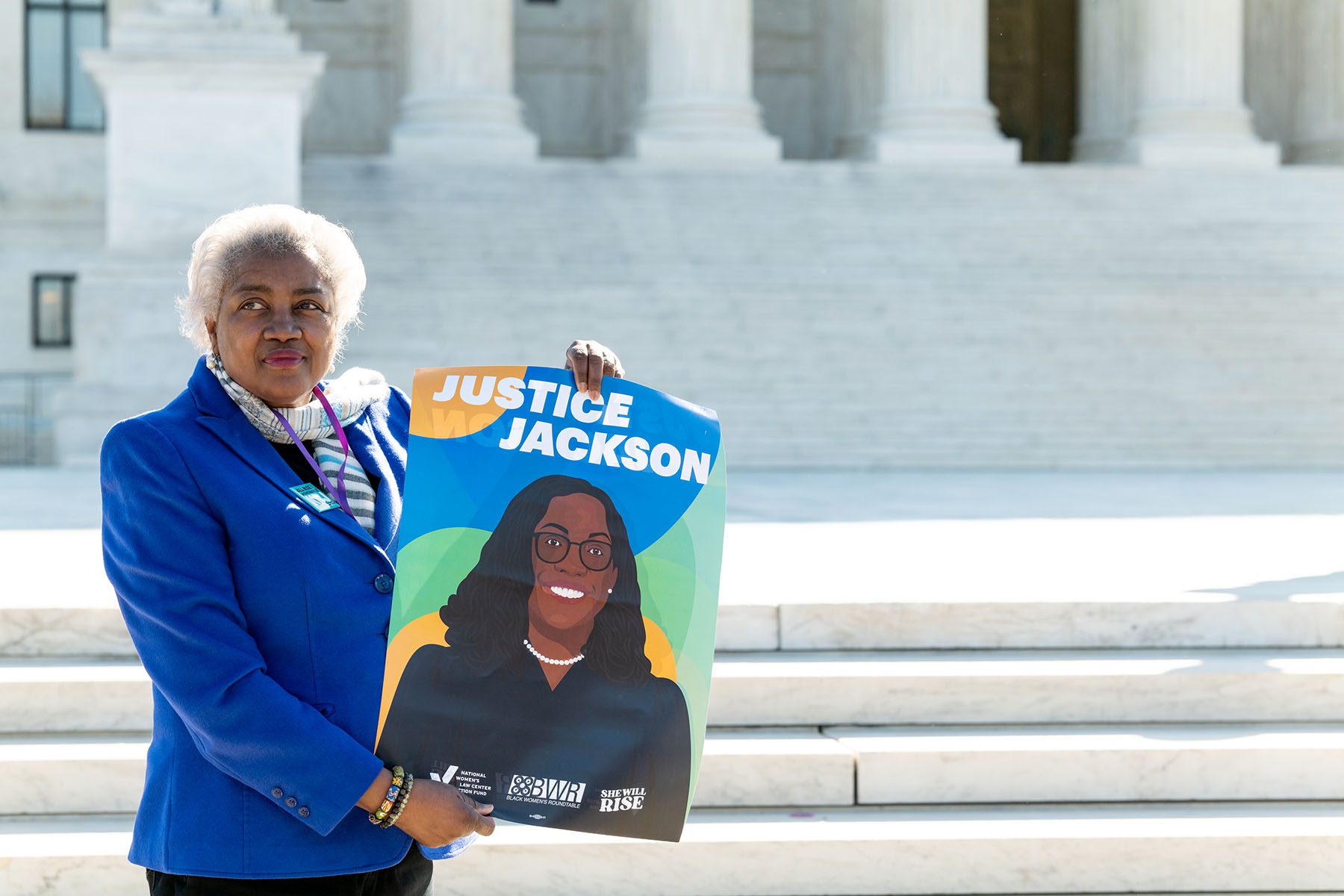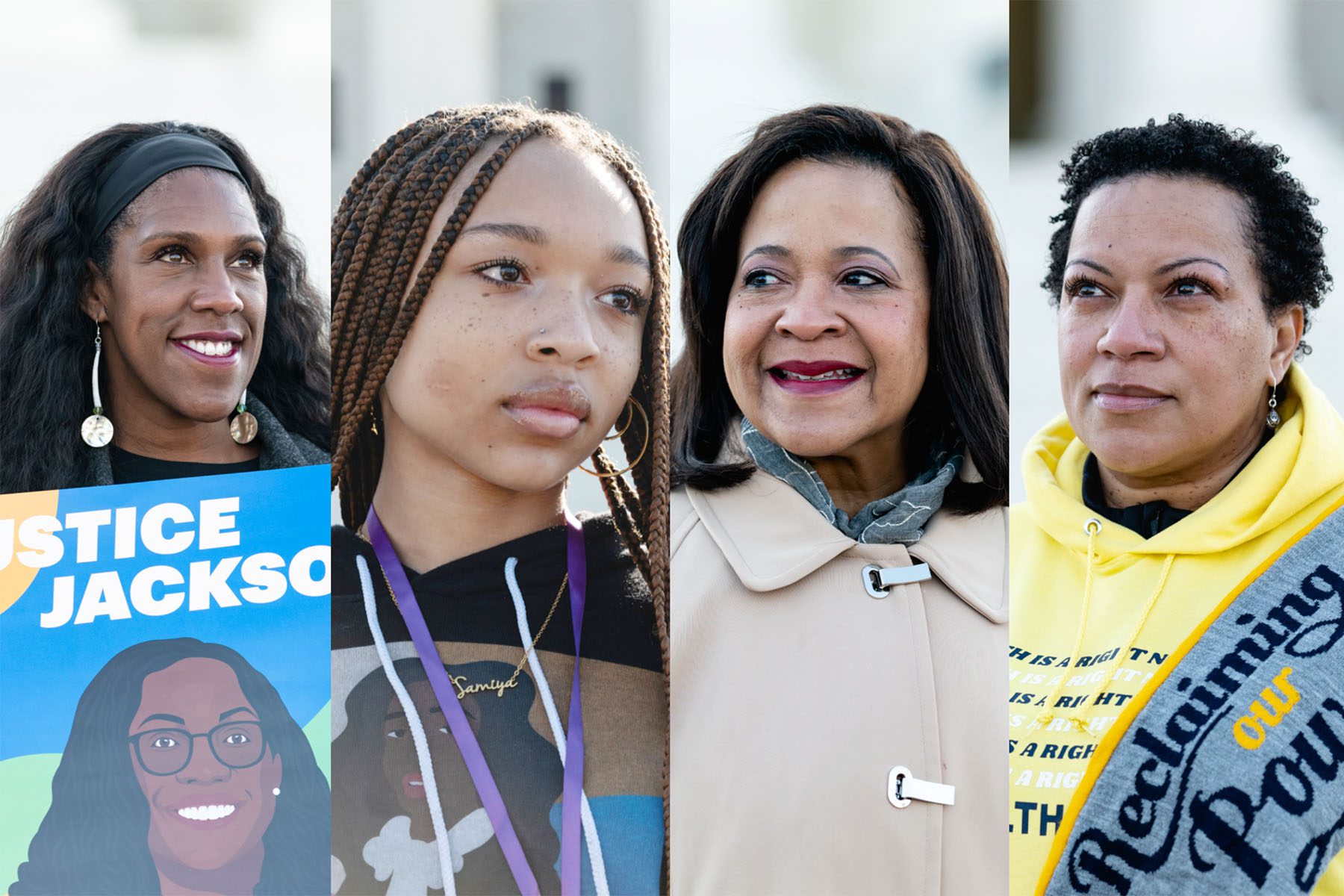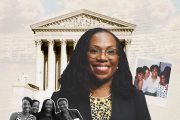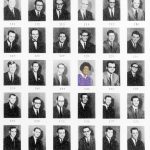For Black women across the country, the confirmation hearings of Judge Ketanji Brown Jackson — who is likely to become the country’s first Black woman Supreme Court justice — are a moment of pride, joy, inspiration and validation. At the start of this week’s hearing, The 19th spoke to people who gathered on the steps of the high court about what her historic journey to the most powerful bench in the United States means.
Black women turned out in record numbers in the 2020 presidential election, in part galvanized by Joe Biden’s campaign pledge to nominate a Black woman Supreme Court justice at his first opportunity. For many, his fulfilled promise is also a product of their efforts at the ballot box.
The Black women who showed up Monday were among those voters. They are now staying civically engaged and standing ready to defend her against racist and gendered attacks as Jackson stands at the threshold of history. They brought a range of lived experiences to the court steps and the conversation, while identifying with Jackson’s in a number of ways: as a mother, a Washingtonian, a woman in her 50s, professionals wearing their natural hair. School-aged girls joined high-profile political strategists, activists and lawyers — including at least one of Jackson’s law school classmates — on the steps of the court.
For many, it is a hopeful and overdue moment of inclusion, visibility and representation. It is an acknowledgment of the many contributions of Black women, known and unknown, to American democracy — one set to be recognized with a lifetime appointment.
Quotes have been edited for length and clarity.
LaDon Love, Washington, D.C.
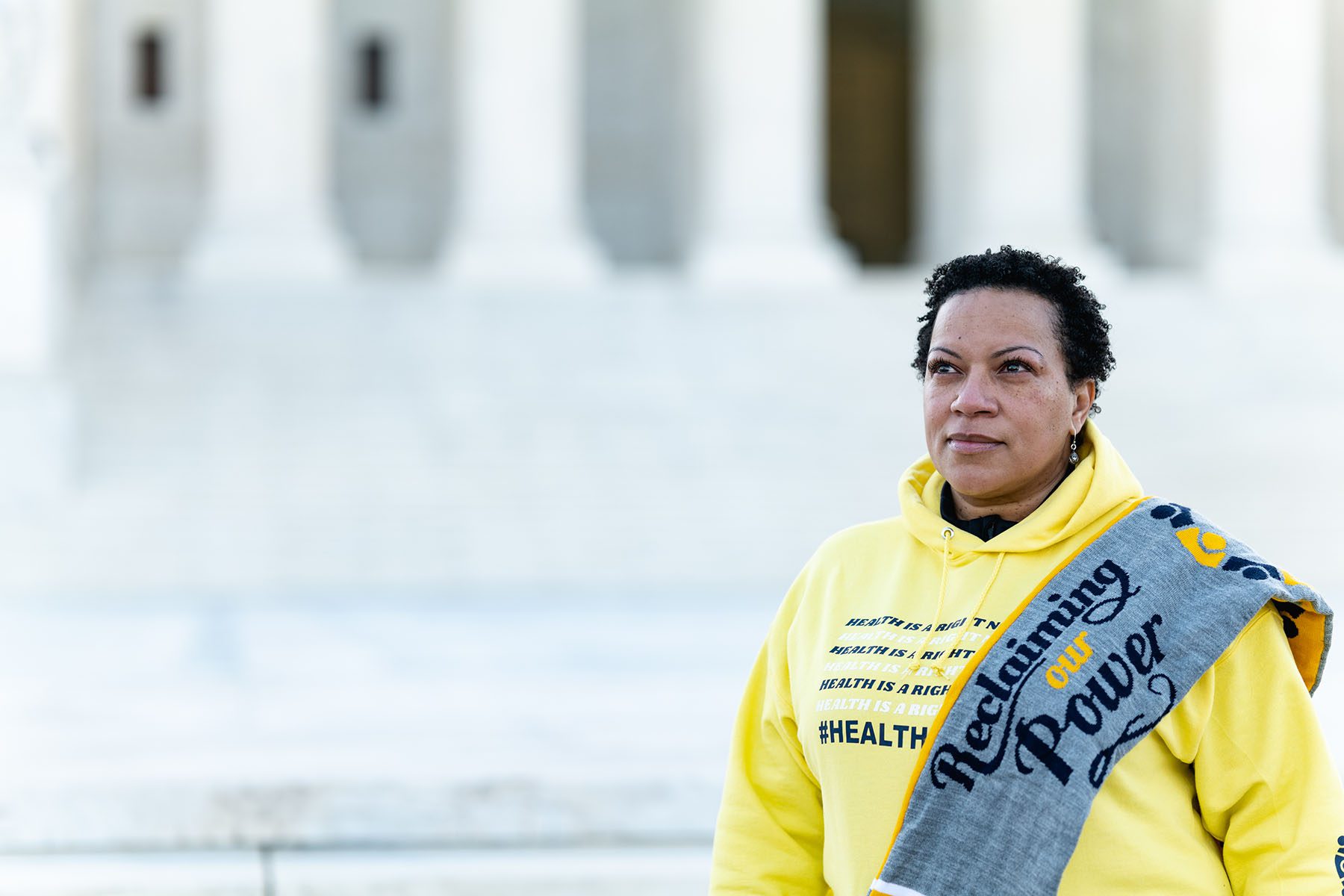
“My cousin Constance Baker Motley stood with Thurgood Marshall to fight for Brown v. Board of Education. Her work, standing by Thurgood Marshall’s side, led to a court decision that changed the face of education in America.
“Now we have this moment to confirm the first Black woman, who is extremely qualified, to the Supreme Court. When people see this woman on the seat, think about the young Black girls, think about the young girls of color who are going to say, ‘I can do that too.’”
Aniyah Vines, 22, Washington, D.C.
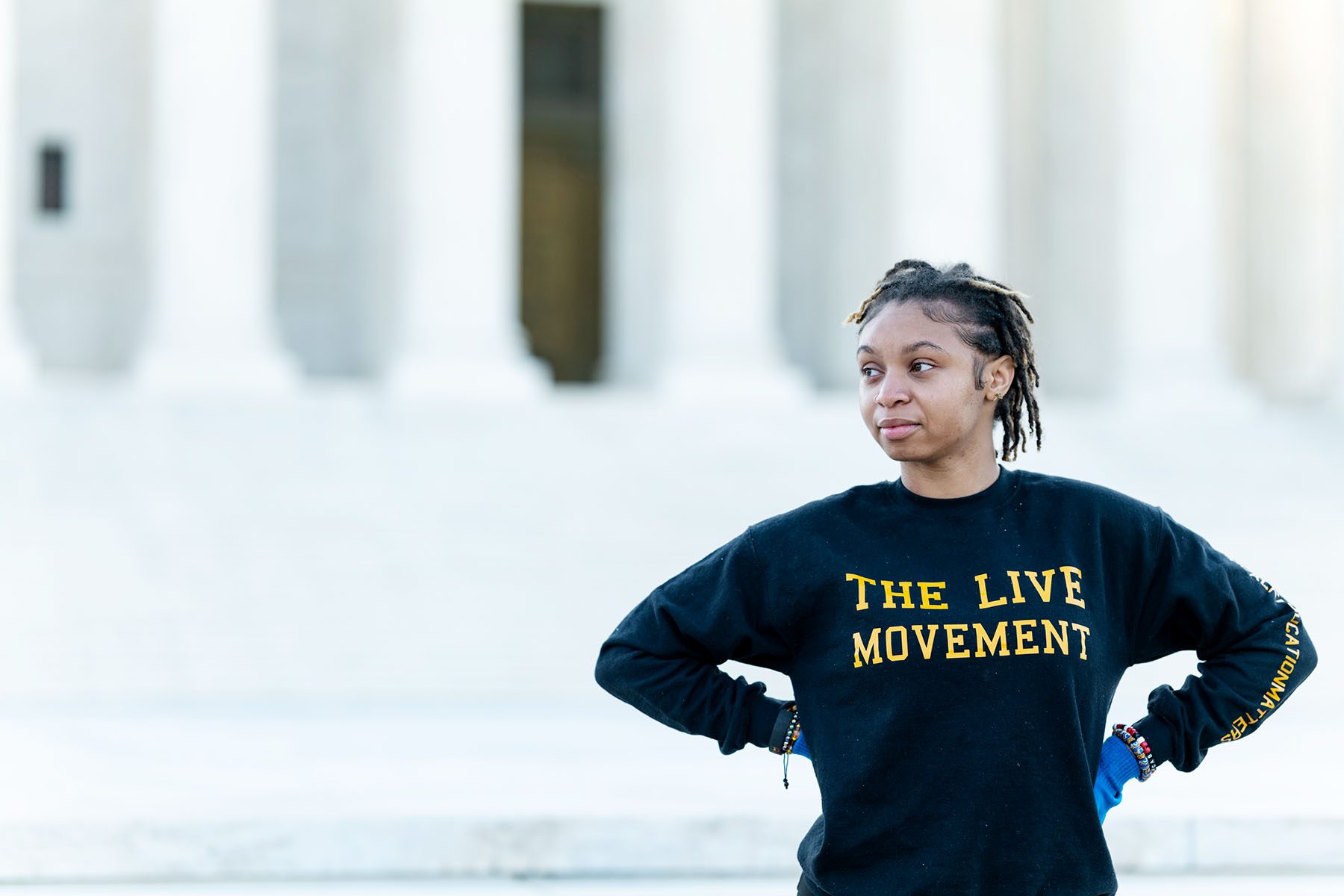
“I am here on behalf of the Black community, Black liberation.
“This nomination to me means a closer step to true justice for Black people from across the nation. It means we are just at the beginning when it comes to true tangible change in the Black community. And it means a closer step to true justice for the Black community in the United States of America.“
Leah Daughtry, 58, Brooklyn, New York
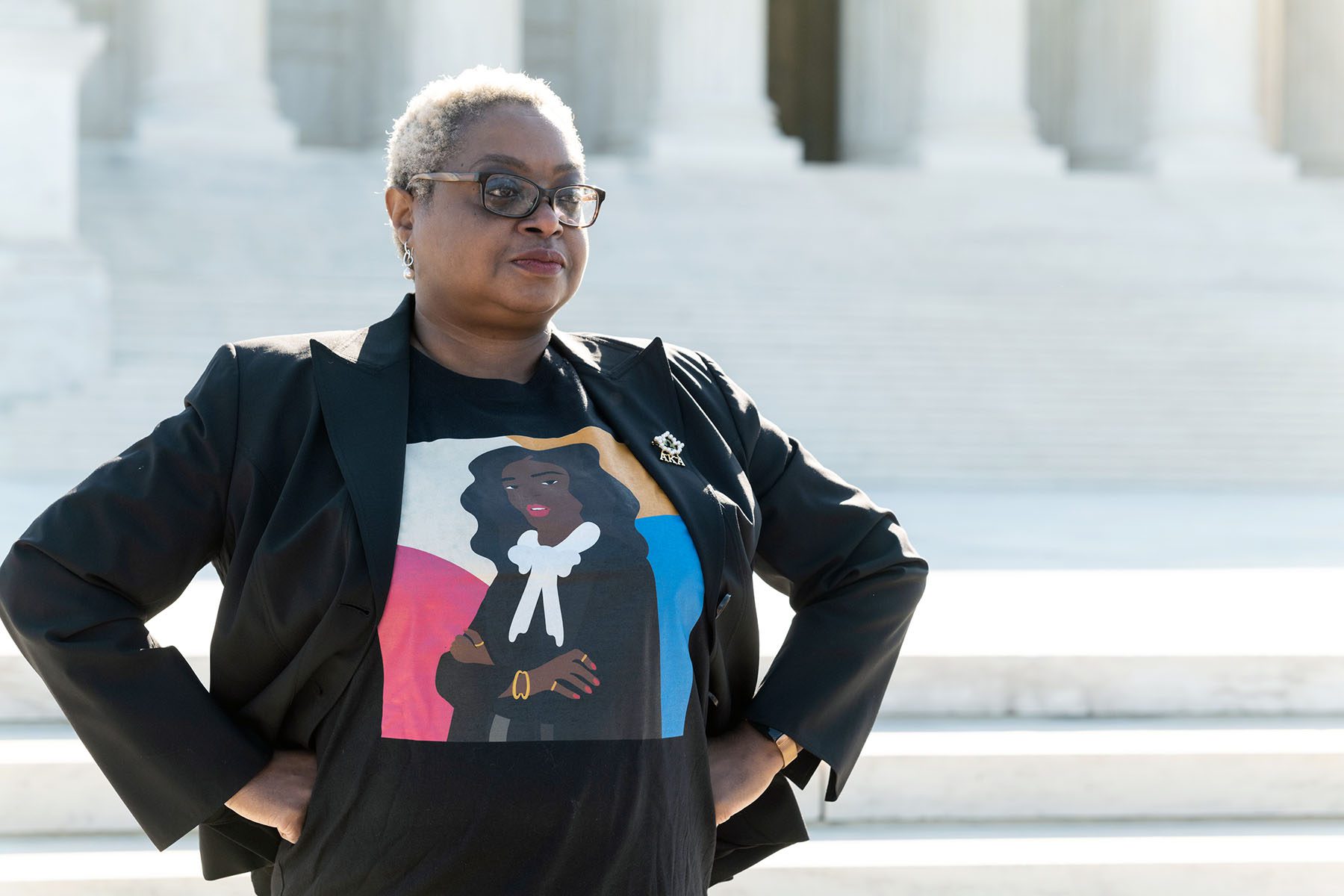
“This moment for me is both a symbol for our children, for our nation, that a Black woman can serve on the Supreme Court. And it is substance.
“She is bringing her lived experience, what it means to be a public defender, what it means to be a judge, what it means to be a Black woman to the bench, a perspective that we have never had in 233 years on the Supreme Court.”
Abiola Agoro, 24, Fort Worth, Texas
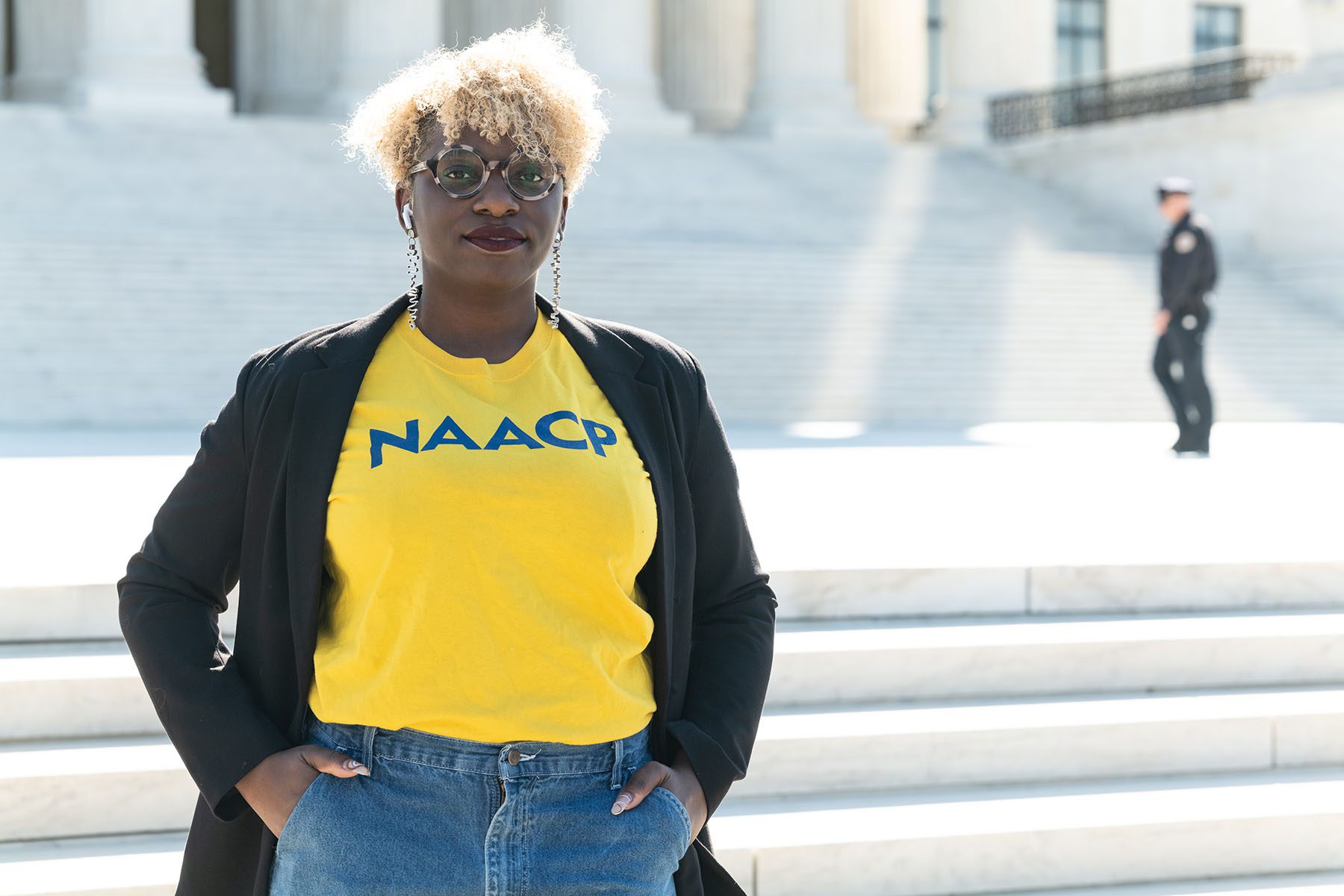
“This nomination means finally being able to not be limited by something as simple as not having representation.
“Being able to finally have a Black woman on the Supreme Court is going to make this a possibility now, and it will make sure that little girls everywhere feel that they can achieve that dream.”
Kim Tignor, Washington, D.C.
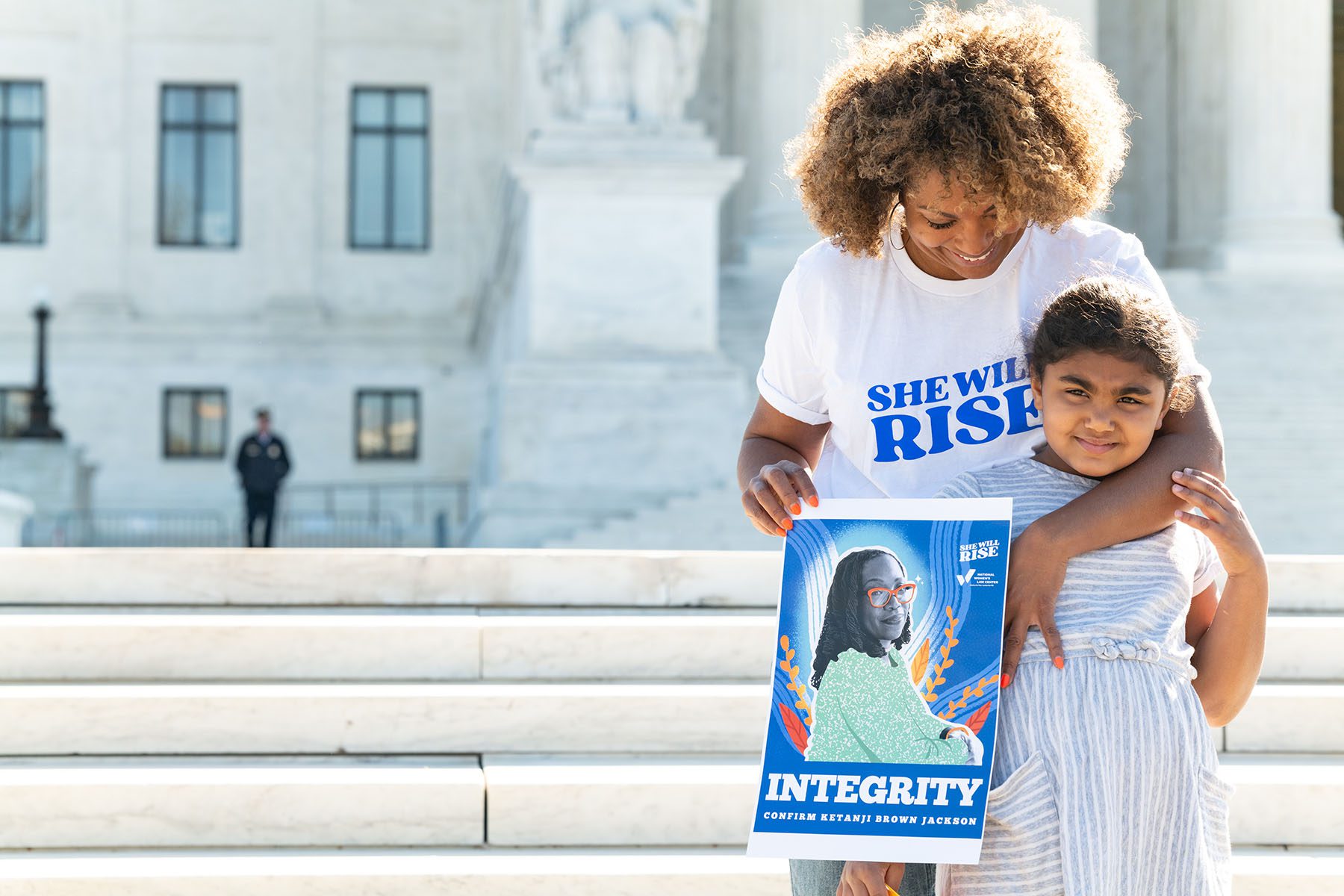
“Now and forever my daughters will see themselves reflected in the Supreme Court.”
Naomi Randolph Hwesuhunu, Washington, North Carolina
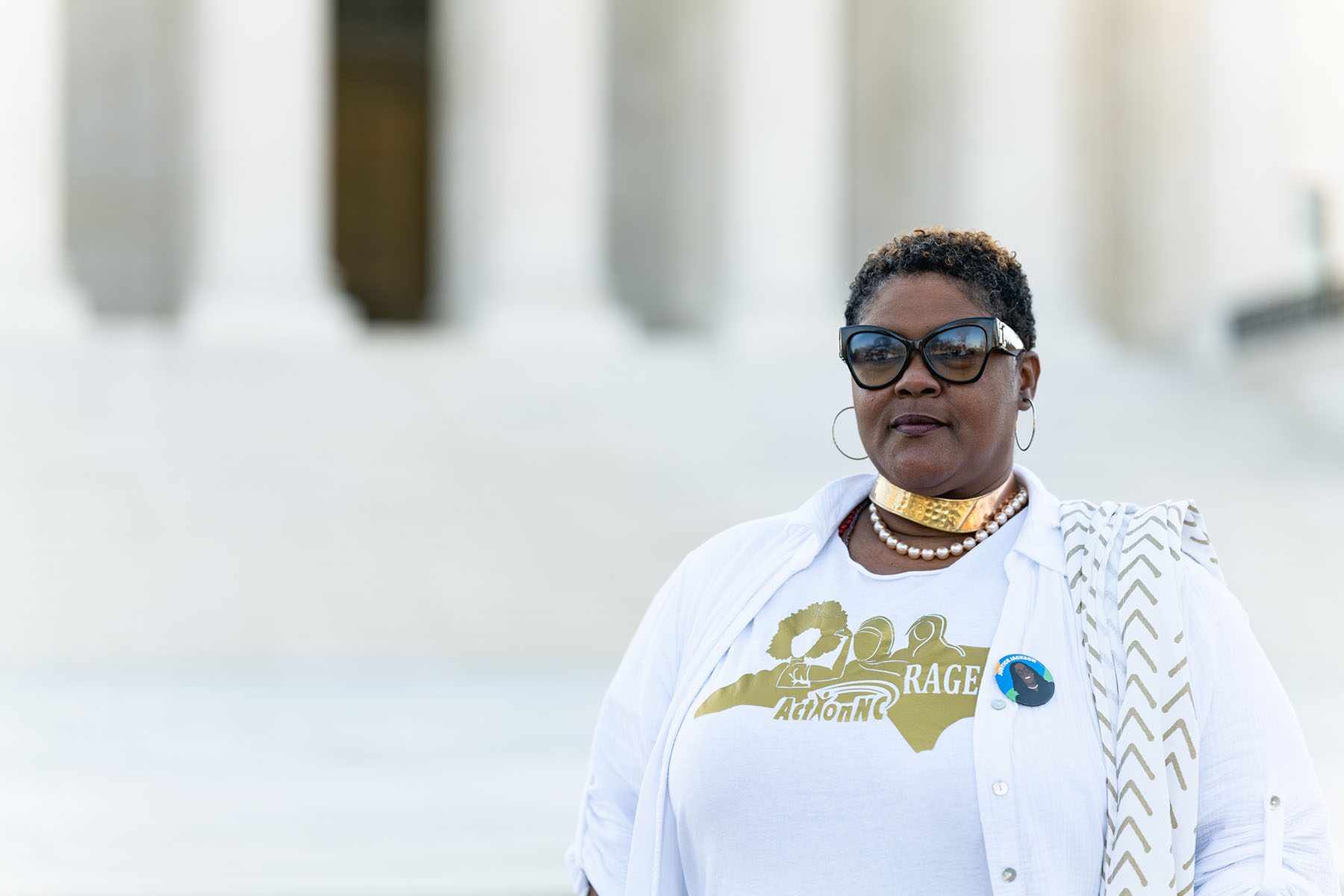
“I am here because sticks in a bundle are unbreakable. And we as women and we as Black women are unbreakable. This is our moment, this is our country. If we built this country, we can change this country.”
Samiya Ali Williams, 16, Washington, D.C.
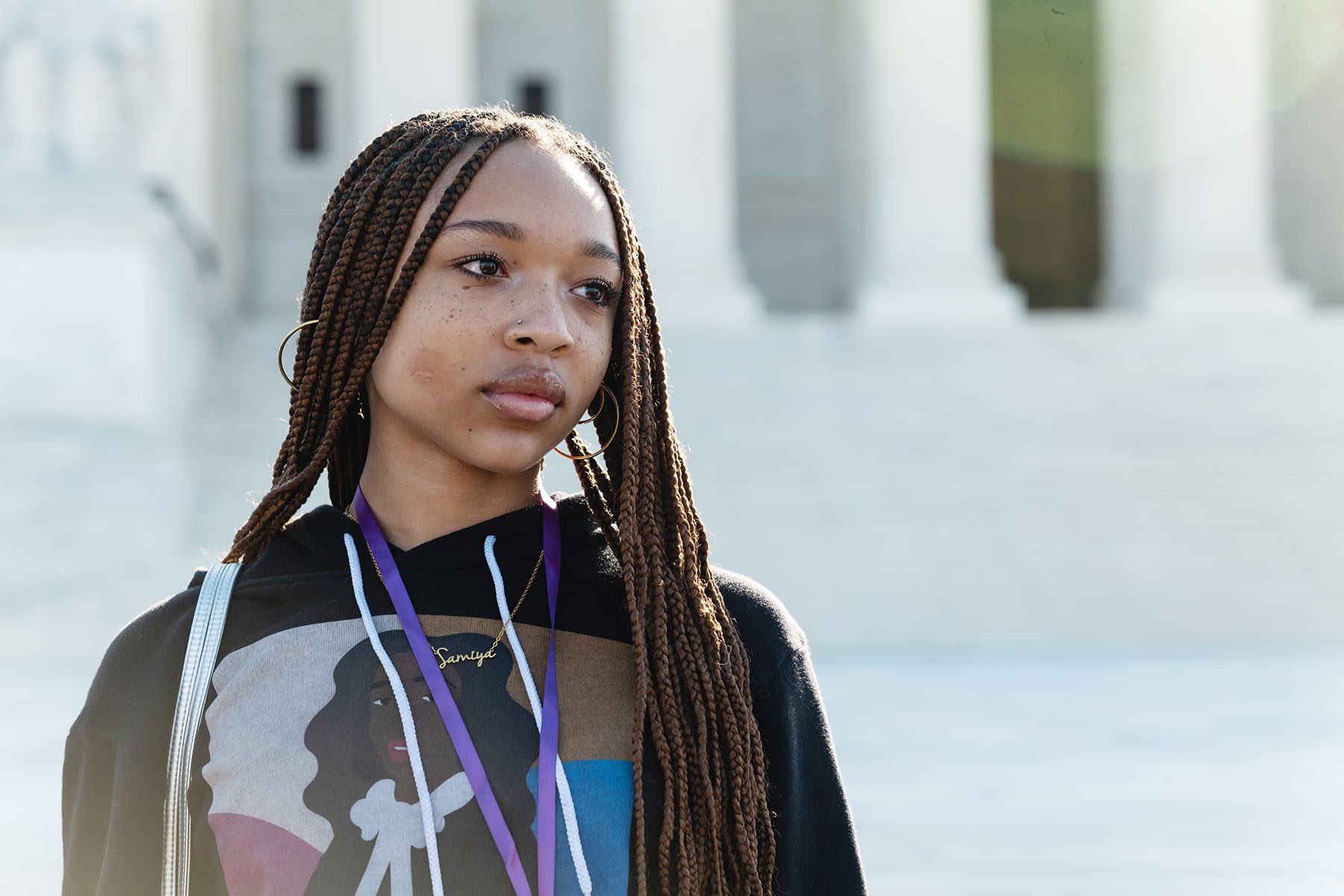
“It means equity. It means everybody is starting to be represented instead of just the White majority.”
Teresa Younger, 53, Brooklyn, New York
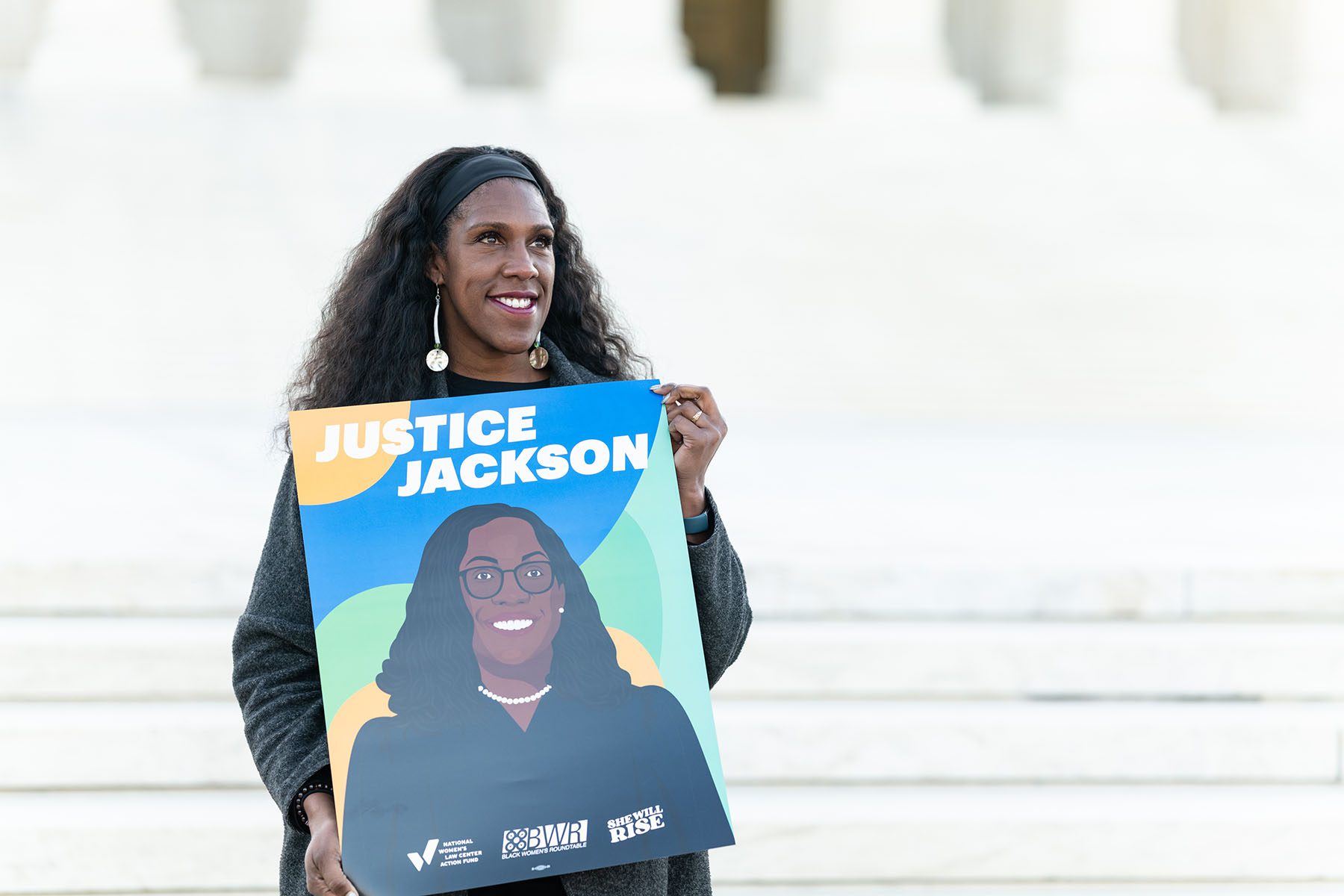
“The idea that a Black woman’s lived experiences can sit on the court is something that brings great joy to me.
“To recognize that future generations will see themselves in leadership at every level from the White House to the Supreme Court, fills me, thrills me and lets me put hope into the world.”
Njeri Mathis Rutledge, 51, Houston, Texas
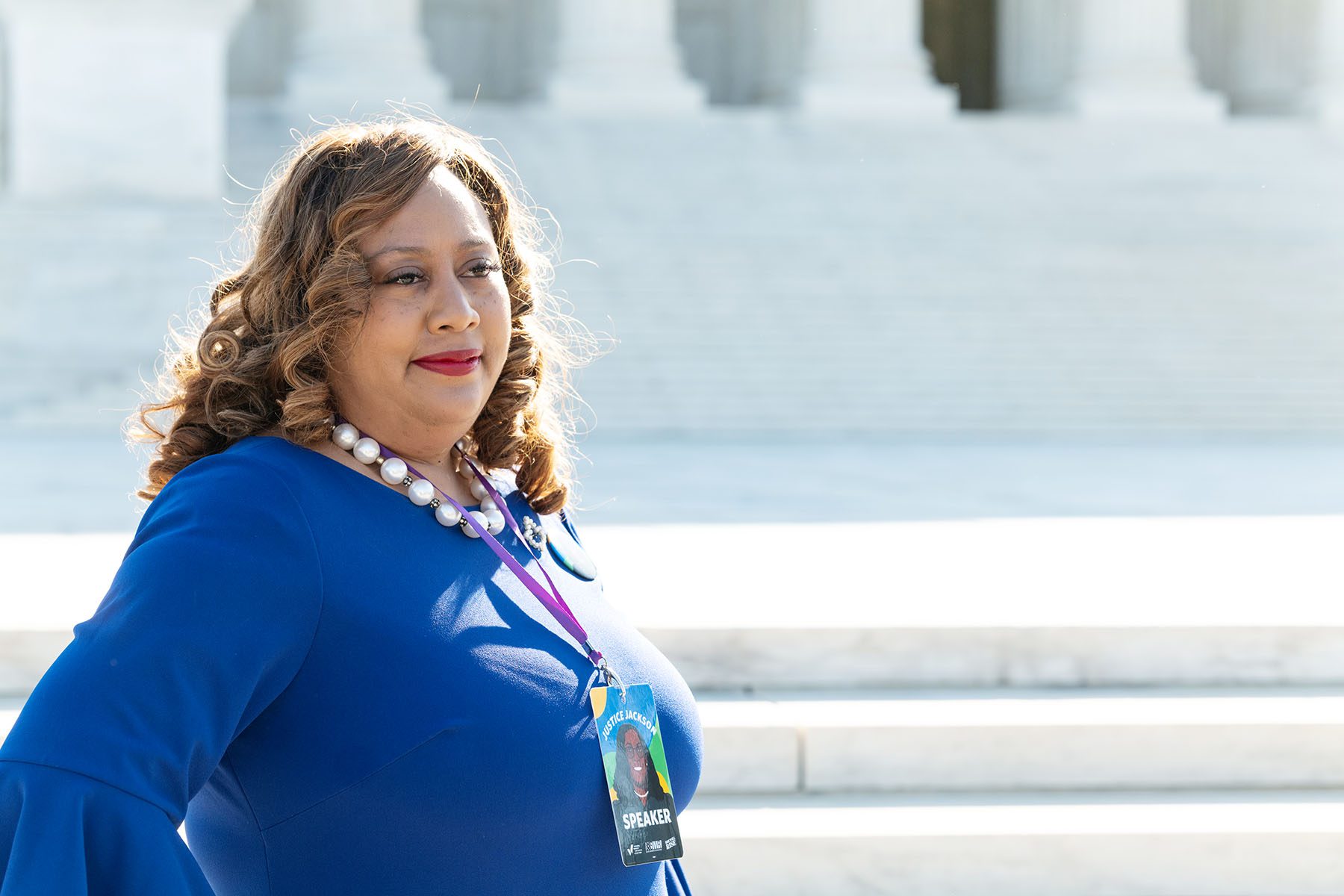
“I had the privilege of being one of Ketanji Brown Jackson’s classmates at Harvard Law School, class of 1996. For me, this moment means that I can tell my 12-year-old, Hailey, that she really can do everything.
“It’s not only a great moment for Black women, it’s a great moment for everyone who values the Constitution and the rule of law. Judge Jackson is an amazing human being, and she has earned this moment.”
Sophia Fouzi, 10, Washington, D.C.
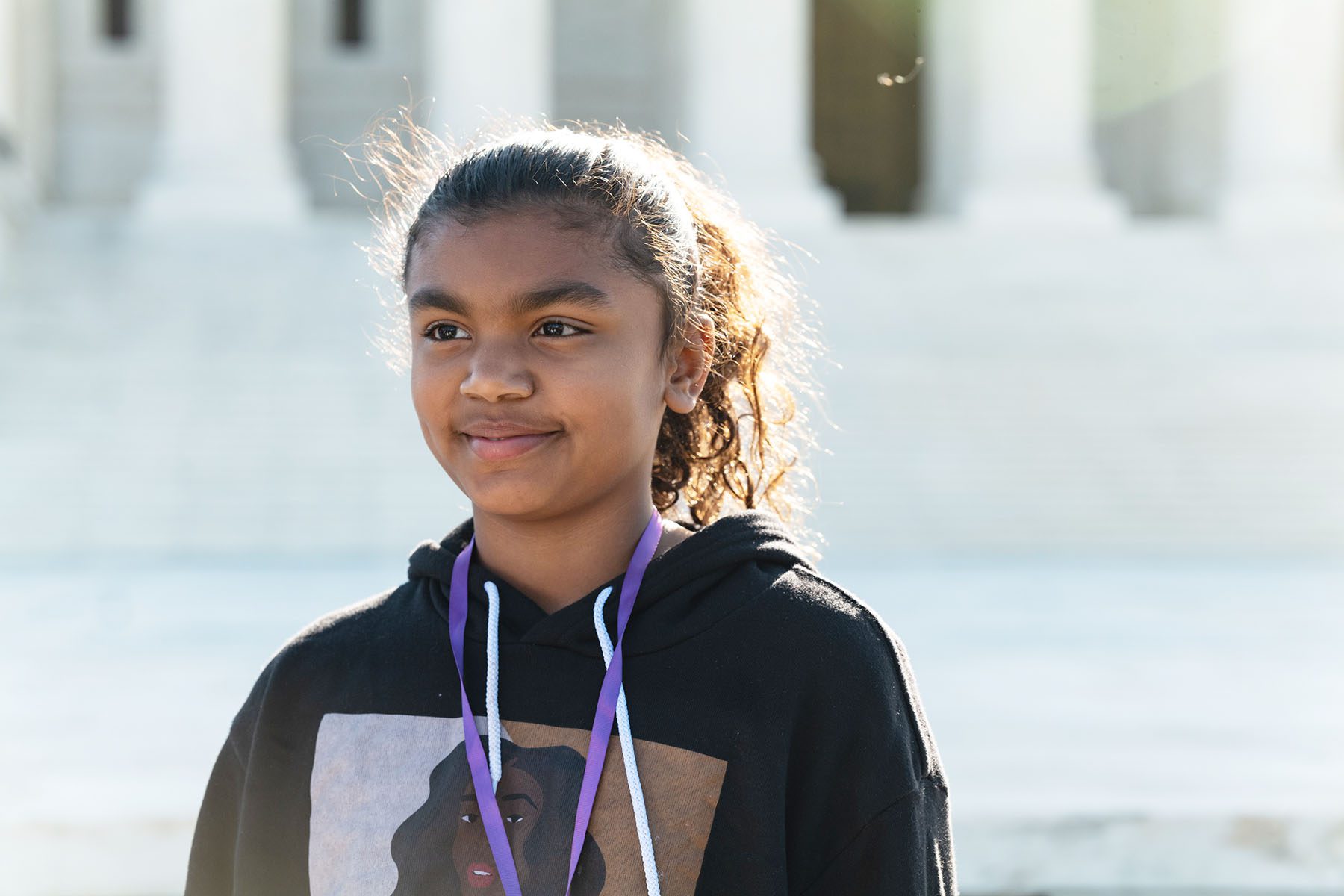
“It really inspires me. It also lets me know that Judge Ketanji Brown Jackson will not be the only Black woman on the Supreme Court, and there will be more to come.”
Patrice Willoughby, mid 50s, Washington, D.C.
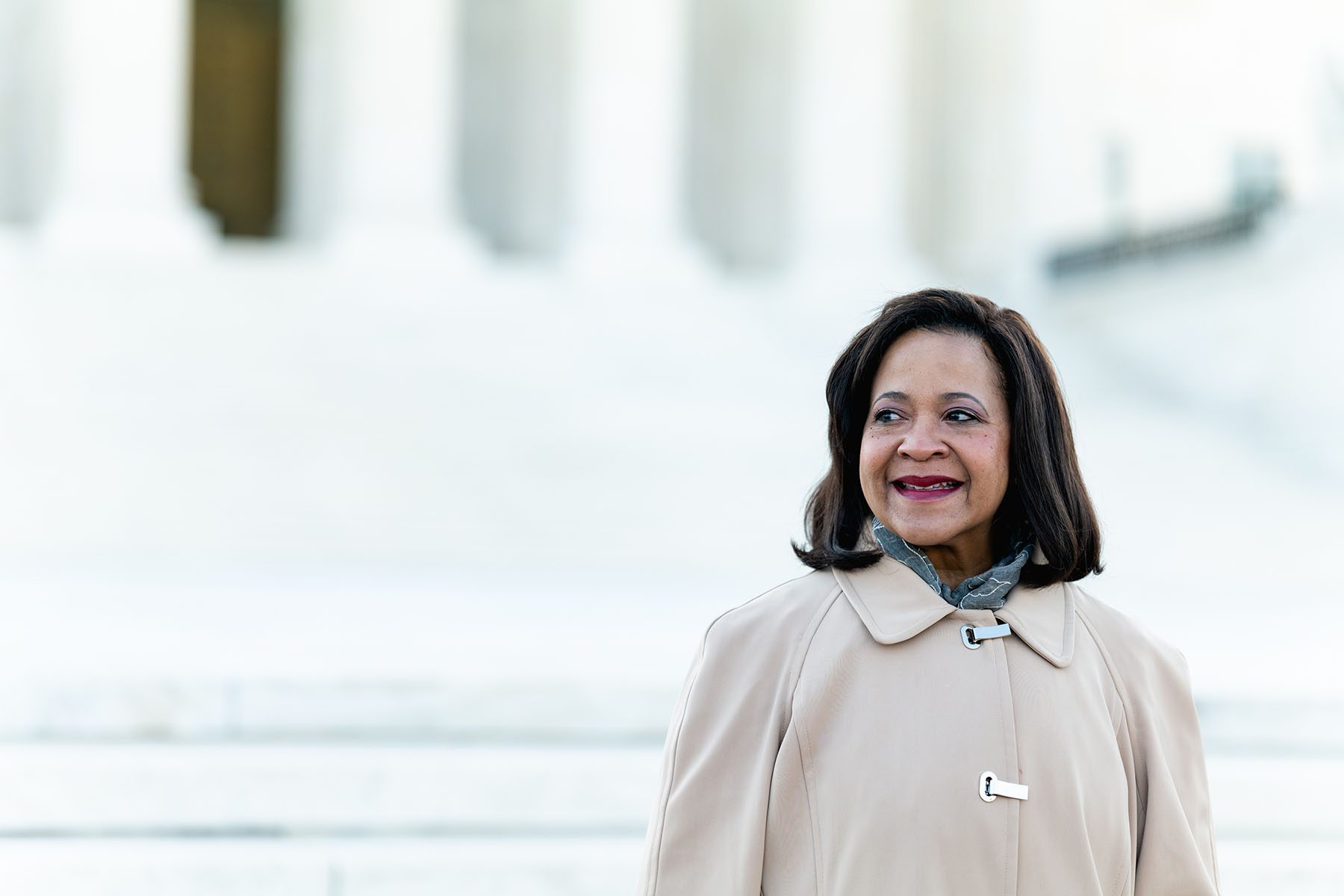
“I’m a lawyer and I know that representation matters.
“Even though judges work within the law and precedents of this country, the lived experience of Judge Ketanji Brown Jackson is going to be really important for the court.”
Dara Baldwin, Washington, D.C.
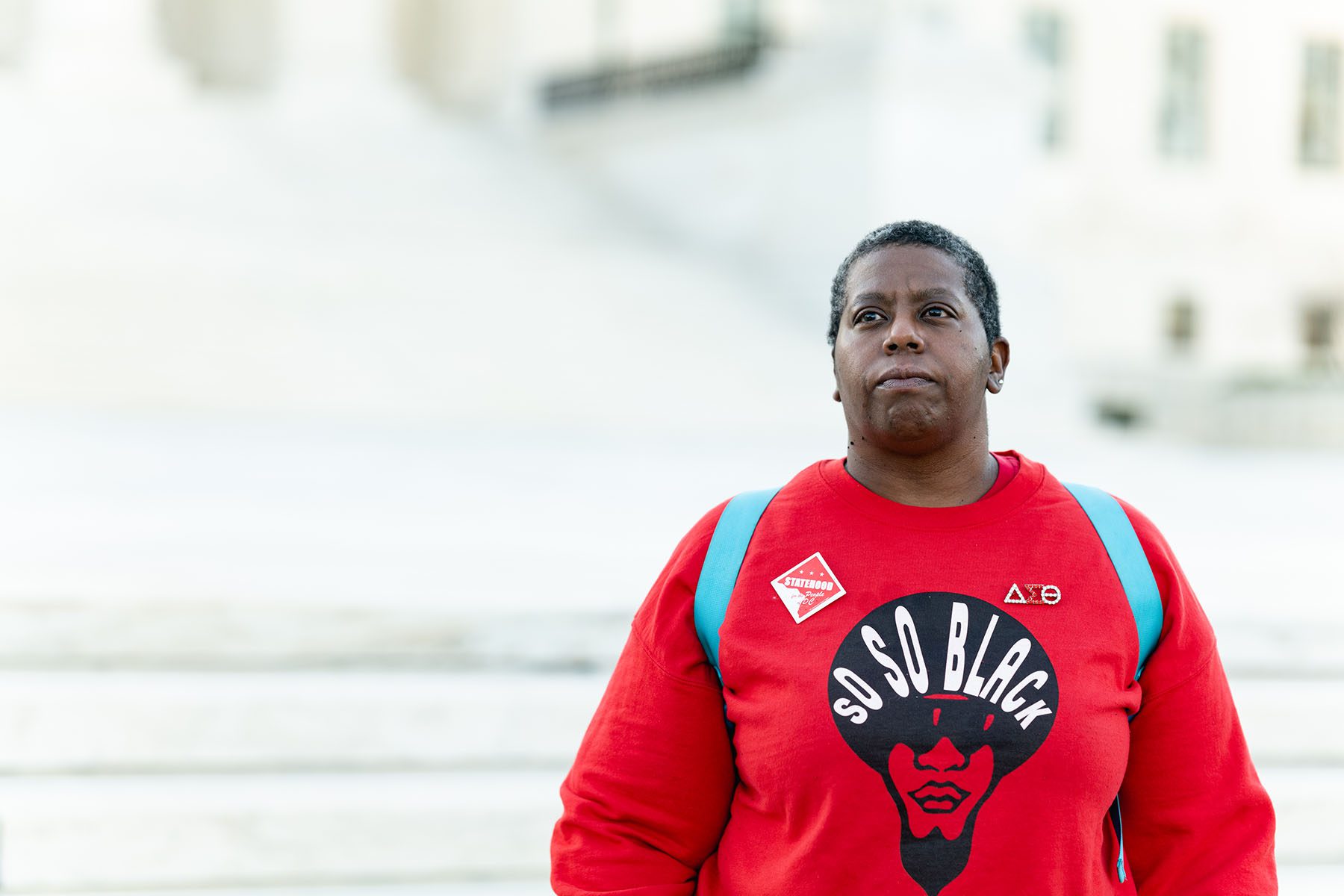
“It is important to me because I am a Black woman, I grew up in the United States, I am from Black women and this is ‘herstoric.’
“I’m here for my godchild, who’s a young Black girl, and all of my sisters and trans sisters and all the Black people in this country that have been waiting for this.”
Donna Brazile, 62, New Orleans, Louisiana
